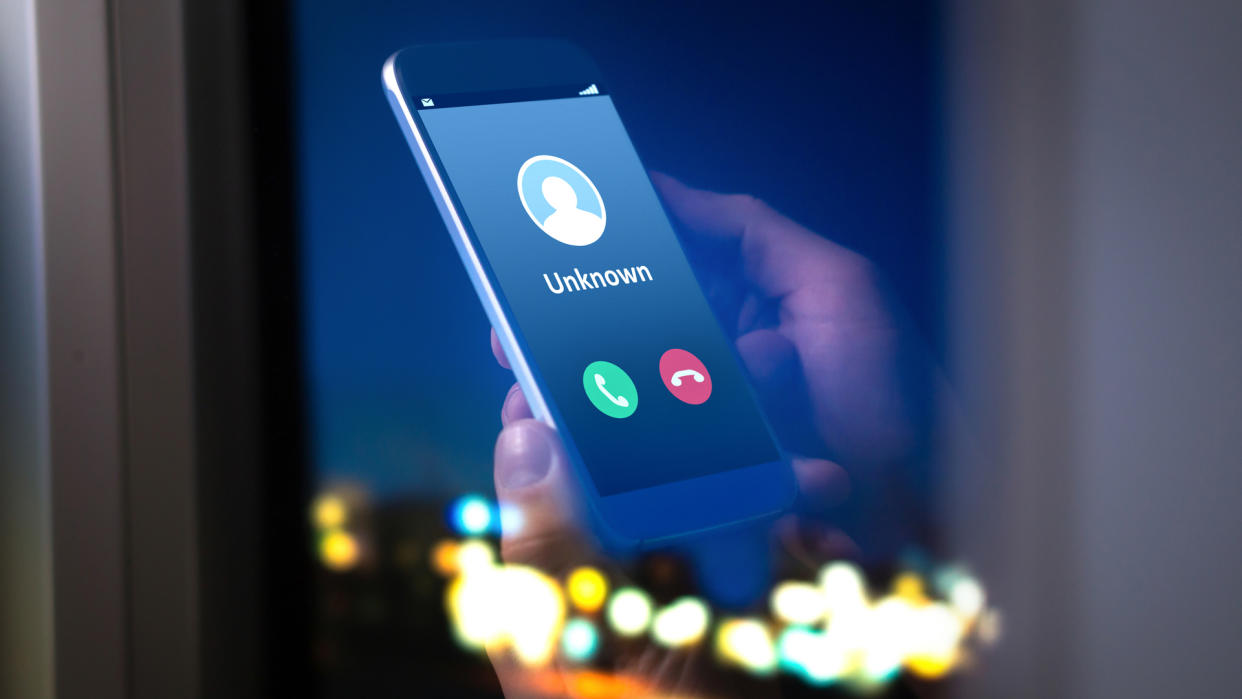‘Ramsey Show’ Co-Host George Kamel: Money Scams To Watch Out For in 2024

George Kamel is a financial personality best known for co-hosting “The Ramsey Show,” created by Dave Ramsey. Kamel released a YouTube video on Dec. 11, 2023, outlining the types of money scams people should watch out for in 2024. This is timely advice, as the FTC reported an incredible $8.8 billion in scams in 2022, up 30% over the prior year.
Experts: Make These 7 Money Resolutions If You Want To Become Rich on an Average Salary
Find Out: 3 Ways To Recession-Proof Your Retirement
One of the reasons scams are so successful is that criminals are experts at understanding human nature. What may seem like an obvious scam to one person could seem like the real deal to another.
With that in mind, here’s a look at the wide range of scams described by Kamel, along with his suggestions on how to protect yourself from falling prey to them.
Crypto Scams
Scams involving cryptocurrency typically appeal to those who want to “get rich quick” or who fear missing out on “the next big thing.”
This type of thinking can make you susceptible to websites or advertisements promising huge gains in this “new currency.” One of the most popular crypto scams involves fake websites that look like legitimate, well-known ones. Once you sign up for an account on the imitation site, the scammers will have your personal and financial information. They’ll also have control over any deposits you make.
I’m a Financial Advisor: Here’s the No. 1 Piece of Advice I Would Give My Younger Self
Student Loan Forgiveness Scams
People are so desperate to get out from under their student loans these days that they may be more susceptible to forgiveness scams. Coupled with the constant talk in the press about various forgiveness programs implemented and suggested by the government, it’s the perfect cocktail for a scam.
Just as with fake crypto websites, scammers have set up a number of imitation student loan forgiveness sites that ask you for vital information like your Social Security number and bank account. Be particularly wary of “urgent” emails or texts pushing you to “apply now” before a new forgiveness program runs out of money.
Romance Scams
Romance is another area in which human beings by their very nature can be susceptible to being scammed. Attractive, fake profiles are designed to steal your heart, and once you’re caught, you’re more likely to fall prey to requests for money.
Online Purchase Scams
Fake online storefronts, or fake ads on places like Facebook, are becoming more and more common. A current hot scam, according to Kamel, is the “puppy scam.” After seeing cute dogs for sale online at a good price, a fake seller asks for a credit card payment and says it was declined, leading them to ask for cash instead. Like a romance scam, if you’ve already fallen in love with a puppy, you might be more susceptible to this type of ploy.
App Scams
Criminals are notoriously good at making clever copies of popular apps. If you aren’t paying attention and download the wrong one, you might end up giving all your personal and banking info, or even money itself, directly to scammers.
Job Scams
Job scammers pose as real companies so they can get personal information and even money from eager applicants. While some may ask for phony job application fees upfront, others may even conduct legitimate-seeming phone interviews in which you have seemingly earned the job. The scam comes when the fake company then asks you for things like your bank information so it can “set up direct deposit.”
How To Avoid Scams
There are concrete steps you can take to actively reduce the chance that you’ll get scammed. Kamel’s favorite preventive actions are as follows:
Change Your Passwords
While acknowledging that it’s a pain, Kamel suggests you change your passwords every 90 days, especially for important accounts like email, social media and bank accounts.
Set Up Two-Factor Authentication
This makes hacking your accounts an extra step harder, which might be enough to deter scammers looking for an easy mark.
Pay Close Attention to Your Emails
Verify that the sender is legitimate and don’t click on any links in your emails. Be especially wary of emails that ask for money, particularly via wire transfer, prepaid debit card, money order or gift card. If you feel like a communication may have come from a legitimate source, like your bank, go to a known webpage and get a valid phone number so that you can contact them directly.
Don’t Engage
If you’re upset at scam attempts, don’t try to “fight back” by engaging with text messages or emails you receive. Just replying can verify with a scammer that your phone number or email address is legitimate, keeping you on their list as a potential target.
Check Your Bank Account Daily
This may sound like a pain, but it actually doesn’t take a lot of time, particularly if you use a banking app. Simply open the app, login with your password or fingerprint and check if there is any unusual activity in your account. Taking 30 seconds per day can go a long way towards helping keep your accounts secure.
Set Up Automatic Purchase Alerts
Purchase alerts can notify you any time a transaction has been made in your bank or credit card account. By setting them up, you’ll know immediately if there is any fraudulent activity in your accounts.
Trust Your Gut
If something seems weird or somehow “off” to you, it probably is. Don’t be tricked by suspicious texts or emails if they seem too good to be true.
More From GOBankingRates
This article originally appeared on GOBankingRates.com: ‘Ramsey Show’ Co-Host George Kamel: Money Scams To Watch Out For in 2024
